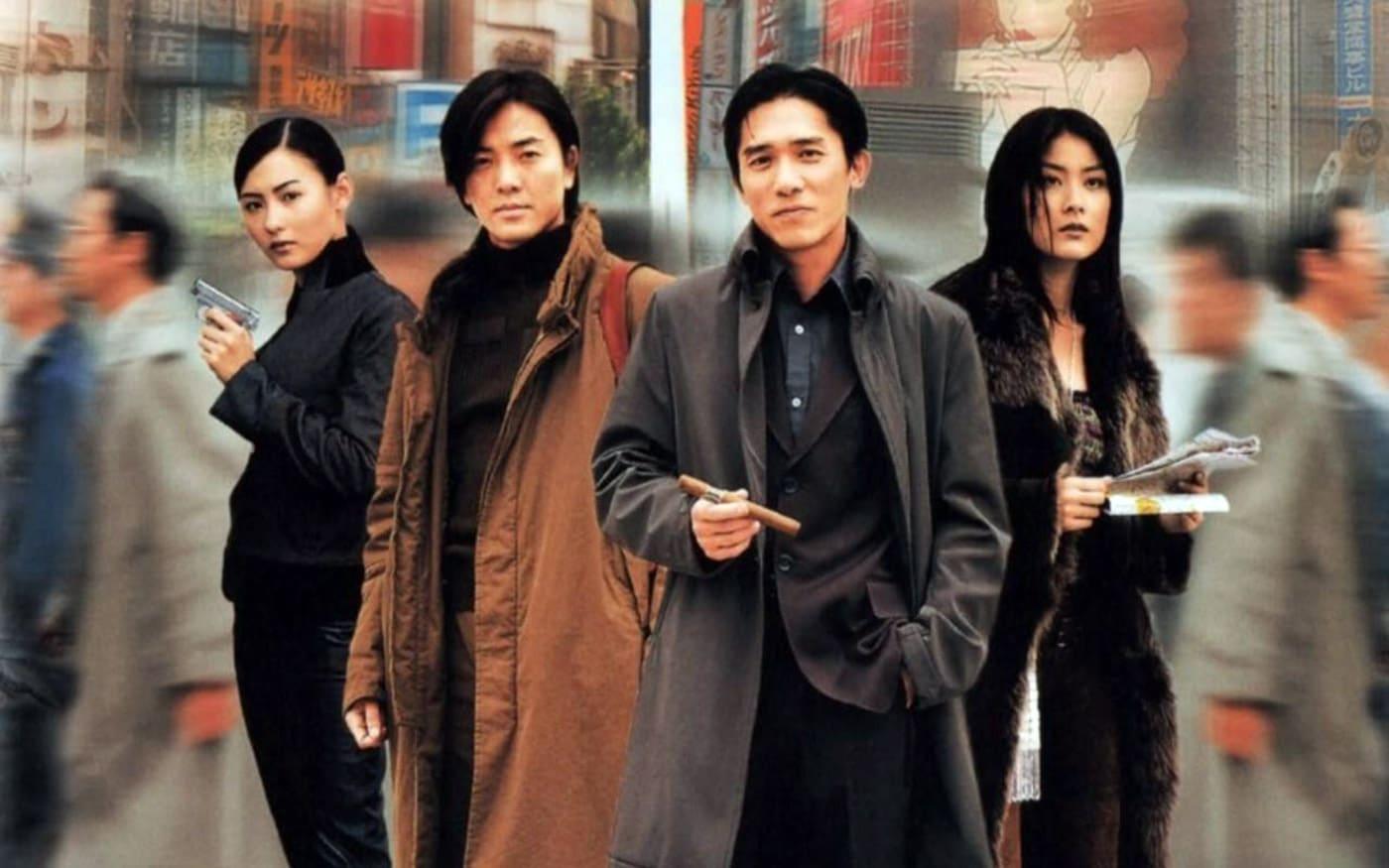Tokyo Raiders by Jingle Ma (Review)

Watching Tokyo Raiders was kind of like watching one of MTV’s “Spring Break” specials. There’s not an ounce of ugliness to be found anywhere. But like a lot of those gals you see cavorting on some Mexican beach, there’s a good deal of Tokyo Raiders that’s, well, artificial. The whole thing plays out like some glamorized music video, rather than a film, from the fancy directing and editing (that feel like they were lifted right out of a Guy Ritchie film) to the stylish settings and outfits to the pop soundtrack.
The film sets up its breakneck pace right from the start. Lin (Tony Leung) is being pursued through Tokyo by a bunch of guys. It’s not clear if he’s a good guy or a bad guy, but one thing is clear. In a fight, he’d probably give James Bond a run for his money. Not only does he have a bunch of nifty Bond-like gadgets (smoke canisters, glue sticks, cattle prod, a trenchcoat with ripaway sleeves), but he also knows some mean kung fu. Flash forward to a Las Vegas chapel, where Macy (Kelly Chen) is being stood up by her fiance, Takahashi. Macy returns to Hong Kong, where she runs into Yung (Ekin Cheng), an interior decorator looking for Takahashi, who stiffed him on a payment. Together, Macy and Yung head to Tokyo to track down Takahashi.
The next thing you know, they’re getting mixed up with some suits too. But before you know it, Yung reveals that picking window treatments isn’t his only skill. That’s right… Yung is quite the kung fu expert (I guess he needs something to keep other guys from making fun of him). Of course, some pretty fancy editing and lots of slow motion (and some flashy flamenco music) help out his kung fu quite a bit. Actually all of the kung fu in the movie benefits from this treatment. I swear… even I’d look cool doing kung fu if I did it in this movie.
I’d have to say that’s my biggest gripe with this film. I know that I should just sit back and enjoy the ride, but I also know that much of this film’s strength relies on its fancy editing and modern sheen. Plenty of movies have relied heavily on style. Shoot, Guy Ritchie has made a career out of it so far. But his films also have interesting stories, clever plotting, and characters that are interesting, to say the least. But with Tokyo Raiders, if you take out its hipness, its style, it doesn’t have too much left to stand on.
But enough film school. Macy and Yung are rescued by a cute Japanese girl in black leather driving a fast sports car. Alright… it’s just a Pontiac Sunbird (but it is a convertible). She takes them to Lin (who has a whole a gaggle of cute Japanese girls in tight clothing working for him). Lin is a private eye working for Ito, the boss of Japan’s largest gang. Takahashi was working for Ito, but also decided that Ito’s woman was part of his workload and the two of them ran off together. But as the three of them draw closer to Takahashi, noone turns out to be who they claimed to be. Is Lin really a private eye? Is Yung really an interior decorator? Is Macy as ignorant about Takahashi as she claims to be? Will you be surprised at the double-crosses and betrayals?
Well, maybe “double-cross” and “betrayal” are bit strong, because the movie isn’t really savage enough for that. Jingle Ma and Co. obviously intended Tokyo Raiders as nothing more than a hip, stylish movie full of attractive people kicking the crap out of each other. And I suppose it’s pretty successful in that regard. But since it’s so lighthearted, that also means the “groan” factor is pretty high here. For example, I’m sure that the constant bickering between Yung and Lin is supposed to be played for yucks, especially Yung since he’s such a boob. But after awhile, their idle threats (“I’ll smash your face,” “You’re dead meat,” etc.) just get a little tiresome. And Macy may seem like a stubborn, independent woman. That is, until a fight breaks out, and then her only purpose is to get threatened, look distraught, and be totally useless.
Thankfully, all three leads do a fine job with what they’re given. I’ve loved Leung’s work ever since I saw him in John Woo’s Hard Boiled. He’s one of the more underrated Asian actors, and his character is probably my favorite. Perfectly calm and cool… even when he’s fighting on a motorized skateboard or playing video games. And the fact that he did all of his own stunts ups his “cool” meter even more. Chen and Cheng do what they need to do… look pretty for the camera. There is chemistry between them at times, but I honestly can’t say if I’m happy or sad that the hints of romance between them weren’t explored more.
In the end, Tokyo Raiders feels like cinematic frosting… all sweet and sugary, but ultimately fluff. I like stylish movies as much as the next hip, young filmgoer. But I also like there to be a heart, characters worth caring about, an interesting story… something to keep me intrigued once the flashy camera work, breakneck editing, and novelties wear off (a chase involving Yakuza toughs on skateboards and bikes gets old pretty quick). With Tokyo Raiders, there is nothing there to hold my interest. The only thing I have to look forward to is the next flamenco-enhanced fight, Macy’s pouting, or Yung’s buffoonery. And 2 hours of good-looking leads and slick filmmaking doesn’t make for a great (or memorable) movie.
